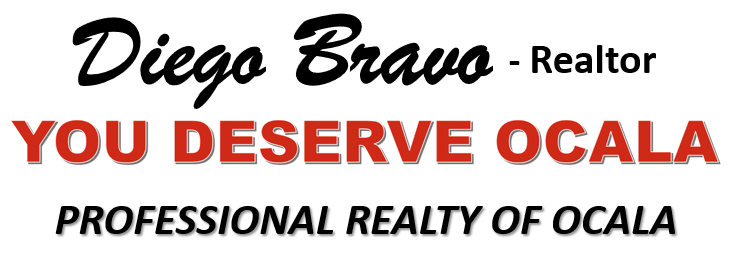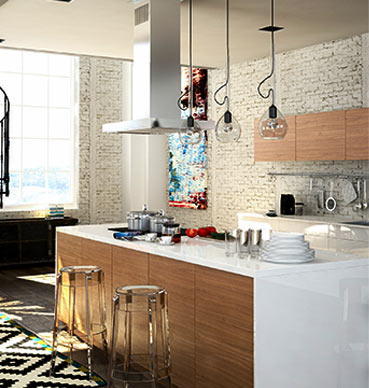HOMEOWNERS ASSOCIATION OR NOT


By Diego Bravo -
Realtor® on April 28/2023
A common dilemma many of my clients have relates to buying property
with or without Homeowners Association (HOA). To explain this, I will refer to various
important terms.
DEED RESTRICTED
While driving into different neighborhoods (gated or not),
sometimes probably you see signs that read, “Deed Restricted”. This
refers to a community with Covenants and Restrictions that define
clearly how the structures should be built on each lot and how the properties
should be maintained. These rules are written and presented to the local
authorities since the land is being platted for development and later recorded
once the project is approved. Since then, covenants and restrictions must be followed
by all present and future owners of one or more properties within the community.
These often include rules about:
· Fences (type, location around the buildings, and
height, when allowed).
· Trees allowed to be planted (type, size) and rules
if they are to be removed later.
· Type of lawn and landscaping and their
maintenance.
· House(s) (minimum size, materials, architecture,
colors, exterior lamps).
· Other structures: Garages, storing sheds,
workshops, barns (for equestrian subdivisions), hangars (for aviation
subdivisions).
· Types of vehicles allowed to be parked
(commercial cars with logos are not allowed to be parked outside overnight in
some subdivisions).
· Having Vessels and/or RVs parked where they are visible
from the neighbors often has restrictions.
· Permissibility to have pets and a maximum number
(dogs, cats, ornamental birds kept inside, reptiles) and/or domestic animals and
a maximum number (horses and other equines, cows, goats, sheep, chicken, peacocks,
pigs), that also depend on the zoning of the subdivision.
HOMEOWNERS ASSOCIATION (HOA)
Homeowners Associations are common in communities/neighborhoods
with condominiums, townhomes, single-family homes, and/or small farms in equestrian
subdivisions or agrihoods. HOA are non-profit corporations that should file tax
returns every year; they are governed by a Board of Directors (President, Vice
President, Secretary, and Treasurer), who usually own properties in the community,
with the assistance of an Architectural Review Board. The Board of Directors members
can have management responsibilities or hire a third-party person or company to
do that.
My clients who say they prefer to buy properties without an
HOA often attribute this to their fear of the fees annual increase. To clarify this,
some HOA rules have a specific allowable increase per year that may be around 5%.
Of course, this should be verified in each community.
Other clients tend to refuse buying real estate in a
community with HOA because they do not want to be told what to do or not do in a
property they are paying/have paid for. This is where the Covenants and
Restrictions of Deed Restricted neighborhoods explained above apply.
The truth is that all neighborhoods with HOA are deed restricted and the HOA
can change the terms of the Covenants and Restrictions.
Nevertheless, few neighborhoods are Deed Restricted without
having HOA. These include some non-gated neighborhoods usually in development,
some rural areas with small farms, and some historic urban areas adopted by the
city authorities. Logically, their restrictions are usually simple.
The pros of owning property in a community with HOA, for
which many people prefer them are:
· It may be fenced and gated, and, sometimes, have
a gate guard 24/7. This increases security.
· It may have amenities for greater enjoyment like
swimming pool(s), fitness center, spa, tennis/pickleball/basketball courts, walking
trails, club house, golf course, restaurant, etc.
· HOA hires and supervises a maintenance team that
mows the lawn of the common areas and maintains streetlights, which is included
in the monthly fee.
· HOA fees in some communities also include lawn
and landscape maintenance to all the properties, irrigation water, internet
service, and cable TV.
· HOA personnel oversee and monitor the properties
to make sure they meet the architectural requirements and enforce the Covenants
and Restrictions in the community. In other words, having HOA helps maintain
good living standards in the community by assuring all the properties are
managed properly, look neat, and, thus, no house looks trashed or neglected,
has a ‘zillion’ cars parked in the front yard, or have erected adjacent
structures that block the neighbors’ view. HOAs can also help resolve disputes
among neighbors.
Some communities have higher HOA fees than others for
several reasons. Therefore, analyzing the services this fee covers is very
important. For example, HOA fee in community #1 is $200 to $250 higher than in
community #2. The higher fee in community #1 includes internet, cable TV, and
the home lawn/landscaping maintenance which is not covered in community #2. In such
case the HOA fee in community #1 may be a better deal because residents in
community #2 still must pay for those additional services separately from different
companies/providers that usually will cost more than that.
One common prohibition in most deed restricted communities
is running a business from home, especially when this brings outside clients and/or
additional traffic of vehicles. Running online businesses and working remotely from
home usually has no restrictions; sometimes, certain professionals can offer consulting
services at home if they do not set signs outside the property. These rules, of
course, should be confirmed with the HOA management in each community.
On the other hand, properties without HOA have some disadvantages
such as not being gated nor having amenities for enjoyment. However, the greatest
challenge of not having HOA is that no-one is overseeing the condition of the
properties. Moreover, because most neighborhoods without HOA are no deed
restricted either, any properties neglected by the owners may become an eyesore
to the neighbors and, in some extreme cases, it may bring serious issues to the
community, including a potential reduction of the properties’ commercial value and/or
their marketability. Additionally, in some areas of the country, security
issues may arise in the non-gated communities.
CODE ENFORCEMENT
Nonetheless, cities or counties often have a division of
code enforcement in charge of promoting, protecting, and improving the health,
safety, and welfare of their citizens. This is the main resource that property
owners in neighborhoods without HOA or deed restrictions can use when a
neighbor or the condition of his house is affecting the community’s health,
safety, and/or welfare. With respect to increasing security in the neighborhood,
homeowners can hire the services of private security companies, use alarms and surveillance
cameras, and collaborate with the sheriff department and other city authorities.
COMMUNITY DEVELOPMENT DISTRICT (CDD)
Although CDD has nothing to do with the terms explained
above, talking about it is important because this increases the home ownership yearly
cost in some subdivisions in Florida. CDD is a special permissible strategy in
Florida that some developers use to not pay with their own money for all the infrastructure
in the communities they build on their own land. CDD allows developers to shift
the cost to build roads, landscaping, streetlights, and amenities for enjoyment
directly to the home buyers who will actually benefit from them.
To pay for building the infrastructure and, sometimes, to
operate it when finished, a developer issues municipal bonds (usually from 20 to
30-years) that are tax-free. The developer chooses five members for the CDD Board
of Supervisors and, for the operative and managing functions of the district, they
hire an administrator (person or company).
CDD fees are collected from the homeowners with the property
taxes every year as an addition to the bill sent by the city or county. If the house was purchased with a mortgage
loan, the loan administrator collects an amount for CDD in the escrow portion
of the monthly bill (usually from $200 to $500), which, at the end of the year,
they pay on behalf the homeowner with the property taxes. If the property is
paid off, the owner will pay the annual CDD fee with the taxes at the end of
the year.
If a community has both HOA and CDD, the HOA continues to oversee,
monitor, and enforce the community Covenants and Restrictions, including
the architectural requirements. Additionally, the HOA represents the homeowners
with the CDD board.
FINAL THOUGHTS
- Communities with HOA are a great alternative for home buyers who prefer gated subdivisions and/or want to have amenities for enjoyment (swimming pool, gym, tennis/pickleball course, golf course, etc.).
- While looking for properties with HOA to buy, important questions to ask are: What is the monthly or annual fee? What is the list of services covered? What is its usual increase in percentage every year? Is this yearly increase pre-defined in the rules?
- Communities where homeowners must pay CDD in
addition to HOA fee generally have amenities for enjoyment. Nevertheless, there
are many communities with HOA but not CDD charges that have similar amenities, and
all the services are included in the HOA fee. So, when looking for property to
buy and finding one that has CDD, make sure you fully understand the amount to
be paid annually for this, its use in the community, and for how many years it
will be charged. Also, check what the HOA fee is and what it covers.
If you are interested in buying property in Ocala or other areas in Florida, contact us at (352) 266-2782 by text, WhatsApp, or phone call. We have great options among new construction, used houses, horse farms, income-generating properties, or land.





